Part 12 - Shuffle Synchronicities Podscript 🎙📇 with Ray Padgett
dylan had a christian era?
Today in other Substackers to follow if you do get the app, we’re going with
who writes another music & memoir Substack:Like Shuffle Synchroncities, music forms a major part of the fabric of Luigi’s life. We have an unpublished guest post collab together that should run in the new year.
OK!
Previously…
In Part 11 🎙📇
In part 11, Dave explained how and why he deleted the Shuffle, he had Ray set up the history of the 1966 Dylan Goes Electric ‘The Royal Albert Hall’ show in order to describe how he had his own “Judas” moment with Bob (in his mind at least).
Want to catch up?
Part 11 is available here. Part 10 here. Part 9 here. Part 8 here. Part 7 here. Part 6 here. Part 5 here. Part 4 here. Part 3 here. Part 2 here. Part 1 here. Preamble here.
Don’t want to wait?
The audio of the full Podcast is also already available:
Otherwise…
Part 12 of The Shuffle Synchronicities Podscript 🎙📇 with Ray Padgett
begins now!
Dave
And I think, like, that what was helpful was seeing later when you wrote about this, you wrote about how like the actual Royal Albert Hall show, you know, was totally different in a way that he was like way more positive.
Dave
Like he wasn't fighting them in that kind of, like, pugilistic way that everybody remembers him as like, Play fucking loud. Like, you had this really nice quote. I’ll see if I can read parts of it. Um, let's see, of what he actually said, which is like, let’s see, um, yeah, he just said at the actual Robert Albert Hall Show, he says:
“We're gonna leave after this song. And I wanna say goodbye to all you people. You've been very <laugh> warm, great people. You've been very nice people. I mean, you are sitting here in this great huge place and believe me, we've enjoyed every minute of being here.”
And so I think that “We've enjoyed every minute of being here”, and you added ‘a far cry from play fucking loud,’ which is funny because I’m a far cry <laugh> Like no one heard my, my cry, you know?
Ray
<laugh>
Dave
And like, I think that's the thing, Dylan can be both things. He can be really pugilistic, but he can also be really warm. And that's something that I think your interviews capture, kind of going back into another quote. There's this interview with this guy who went swimming with Bob Dylan and, and they went out and they swam. And then he was like, Oh, do you wanna go back?…Because I wanna go keep going swimming forward. And Dylan's like, I'll swim there if you, if you want to, I will. And that person person used that phrase. I will, if you will. To like kind of sum up Dylan.
Dave
And then, can we talk about is Dylan, like, a mystic, and I don't know…
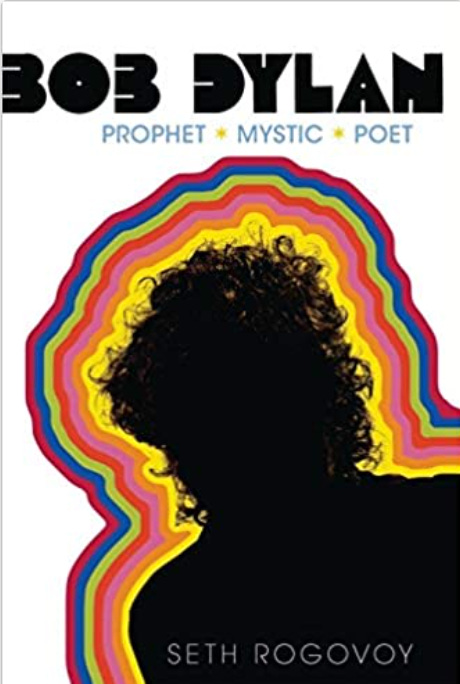
Dave
His Christian…era. You sent me this article that you haven't published about the Christian era, uh, because it's very divisive. It's something that came up in the Shuffle. Watered-Down Love, the song that you shuffle to, is from the Christian era.
Dave
And that was, that was almost like the Judas era where people like had a really, really rough response to what he was doing. Can you speak to that? Because I feel like you interviewed a lot of people from that era. What was, what was the, the vibe of that time?
Ray
Yeah, it was the most, it really was sort of a recreation of Bob Goes Electric. It's like, it's, it's sort of funny. Bob goes electric in 66, everyone's all pissed off about it, but then they sort of, everyone realizes they were wrong and, you know, within a few years everyone's on board.
Dave
Yeah.
Ray
And then fast forward, what, 13 years later, and now Bob Goes Christian.
Dave
<laugh> Yeah.
Ray
And not only is he making Christian albums, but he's doing these tours where he doesn't play a single song from his pre-Christian era.
Dave
Wow, yeah.
Ray
You know, you're not getting anything you probably know.
Dave
Right.
Ray
Um, and so yeah, so people are, needless to say, this is extremely divisive. Both the fact that he's not playing old songs, the fact that all of his new songs are very stridently in many cases, Christian. Stridently, you're going to hell if you don't believe what I believe. I mean, he's really sort of out there. It doesn't, it doesn't last too long like that. But there's, you know, a year or so. Um, and so, yeah, so, you know, I think it's one of these things like with so many things people came around at least musically, you know, I think people think that it’s some of, it's like this amazing, powerful gospel music.
Dave
Yeah.
Ray
That I think now everyone loves. You know, I mean, everyone who knows it loves. It's not like these are big hits, but, um, at the time, yeah, you got a lot of, he got a lot of hostility from the audience, and he would sort of fight back at them.
Dave
Yeah. So I think the gospel era kind of relates to the Kanye podcast I did last week.
Dave
In the sense that, you know, I found out that, I didn't know Dylan had a Christian era at all.
Ray
<affirms>
Dave
Like, until I went through my own, you know, death of my dad, and then kind of connecting with the Holy Spirit element of Christianity, the mystic elements of Christianity. And um, so when I listened to those songs, like, yeah, I did kind of hear some of the more evangelical moments, but I also heard a lot of the, just what I would call spiritual moments, which, and I think Dylan has just had so much biblical and spiritual, you know, lyrics and, and stuff in his music. But then, you know, and I don't know if you feel comfortable talking about this-
Ray
Yeah.
Dave
But we did some prep about, the relationship between Kanye and Bob.
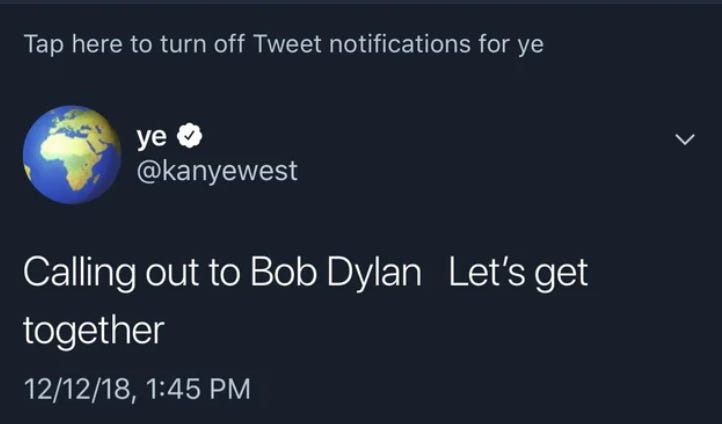
Dave
Because when I found about Bob's Christian era, that was also when Kanye was literally doing his Christian era. And so those two artists were probably my biggest artists, and then myself going through it. And I was looking for similarities myself. And so I asked you, Do you see any similarities or differences between what, what that era was like for Bob and what, what, Kanye is doing now? Sorry, you shared a, a post with me that you didn't publish, that is kind of related to what we're talking about, this kind of, where evangelical Christianity can go in the, in the extreme. Would you mind talking about it?
Ray
Yeah, so basically, like I say, Bob's Christian music, is basically, to the extent anyone knows it, it’s universally acclaimed. Um, but what's interesting is they did this big box set a few years ago, right? And they put out a number of concerts.
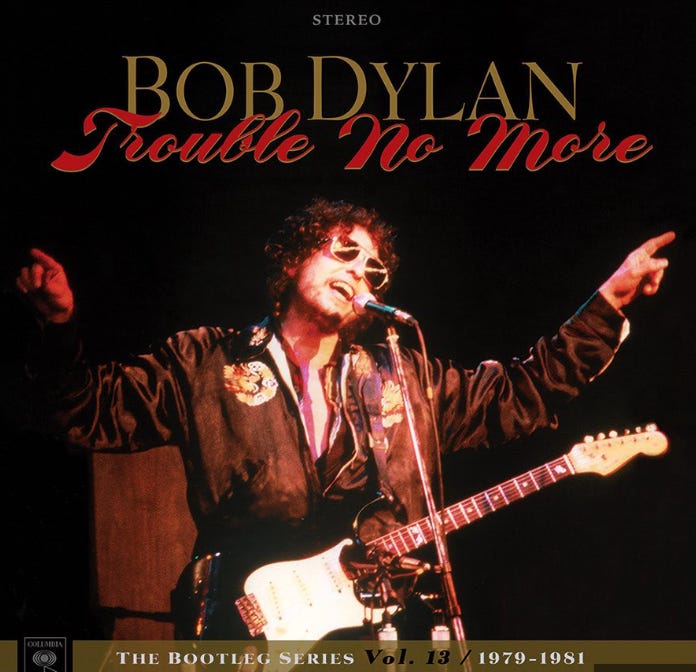
Ray
But if you actually go back and listen to the bootleg recordings, what you'll notice is, that there are a lot of between-song rants, you might say, that are all cut out.
Dave
<laugh>
Ray
The concerts are just wonderful gospel music, right?
Dave
Yeah <laugh>
Ray
But then you listen to what he's saying in between the songs and some of it's a little troubling. Um, you know, so, like, generally, at quite a number of shows. Like I say, he's sort of very, it's a lot about heaven and hell, a lot of stuff from Revelations.
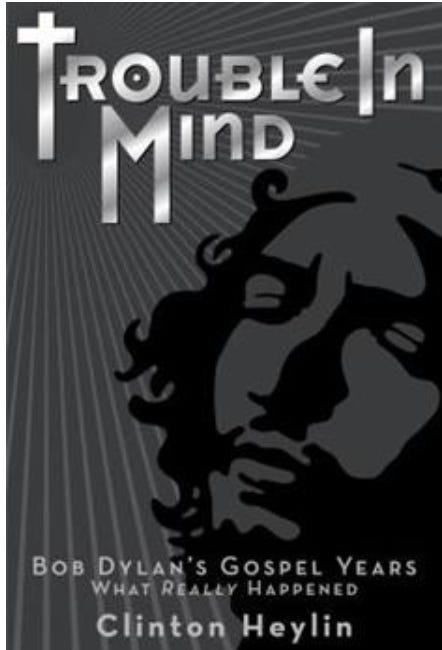
Ray
You know, a lot of, if you're not with me, you're gonna burn forever. That sort of stuff, which is, you know, troubling enough. But you can maybe overlook it, a little bit. But then there's this one, and this was sort of why I wrote the post about that. I'll figure it out. I didn't, I just needed to get the angle right. I'll, I'll figure out how to do it right, better one day. But it was the show I was listening to where he sort of starts talking about San Francisco and all the homosexuals in San Francisco.
Dave
Right.
Ray
And because it's Bob, it's like a little confusing. Like, it's a little hard to parse what he's saying, but like, look, the moment you start talking about, Boy, San Francisco sure does have a lot of homosexuals. Like you're on extremely bad territory already. And then he is talking about the iniquities not full yet. And he's comparing it to this passage in the Bible where people in this one town and now he's talking about San Francisco and all the gay people that live there, and it's like, holy moly, this is, uh, extremely troubling.
Dave
Yeah.
Ray
So, you know, that's, you know, when you were, when you were talking about your last podcast about Kanye, um, you know, I think there's more differences than there are similarities certainly.
Dave
Sure.
Ray
But this was one thing that did come to mind with Dylan and you know, Dylan saying something very troubling. Again, a little confusing.
Dave
Yeah.
Ray
It's, it's like the, it's like the sort of thing that people do now, where there's, like, it's so confusing, that there's like plausible deniability, right?
Dave
Right.
Ray
You can't exactly pin him down on it, but clearly something, something is bad with his thinking, and what he's saying.
Dave
In the moment.
Ray
Yeah <laugh> In that moment.
Dave
Yeah. And I think, I think that's, that's true of kind of the spiritual conversion times. Like there's, like, there's a book by Adyashanti.
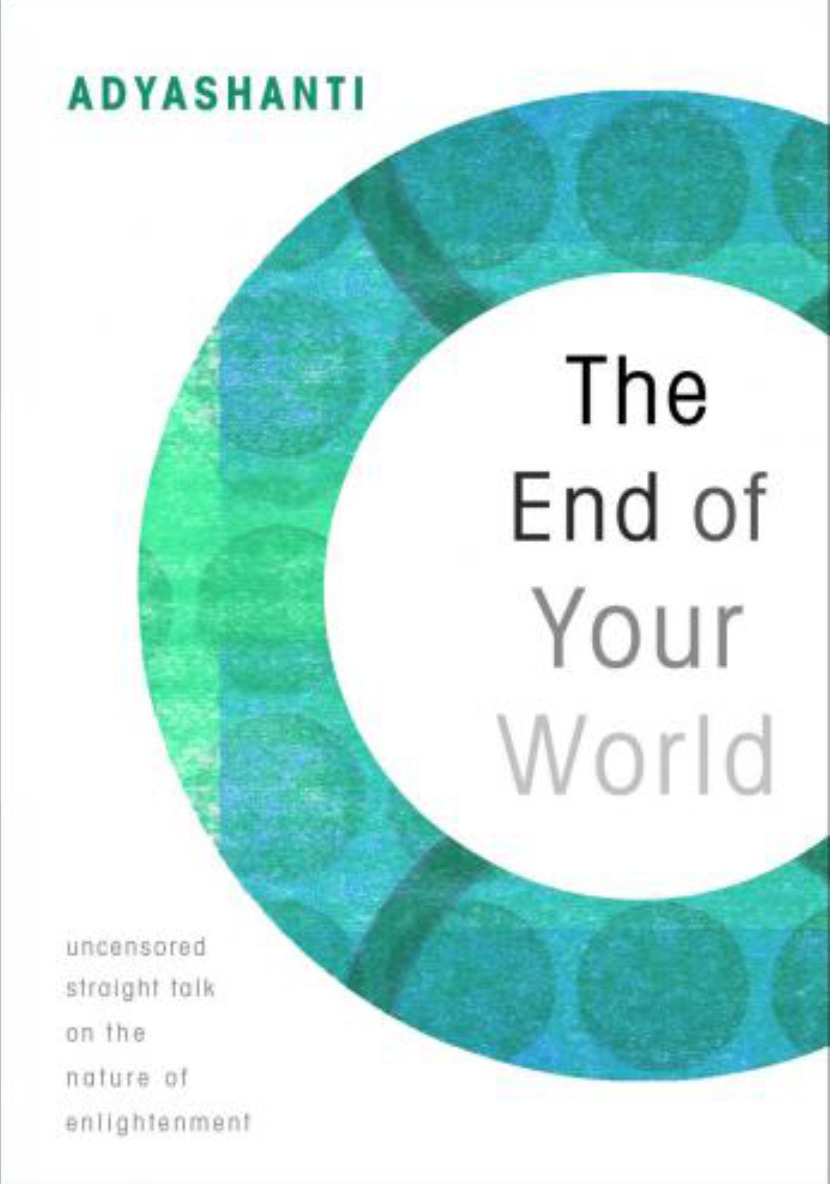
Dave
Which is like people who go through, you know, those moments, quote-unquote enlightenment moments. Like there's a lot of like bad thoughts <laugh> that come out along with that. Like, people think, you know, people don't realize that you could have an enlightening experience within you, that changes you, for the better. But you can still, like, have all the shadow stuff come out, that is, really rough. And I think that that is what you see with Kanye. I talked about, you know, my own, uh, antisemitic moments.
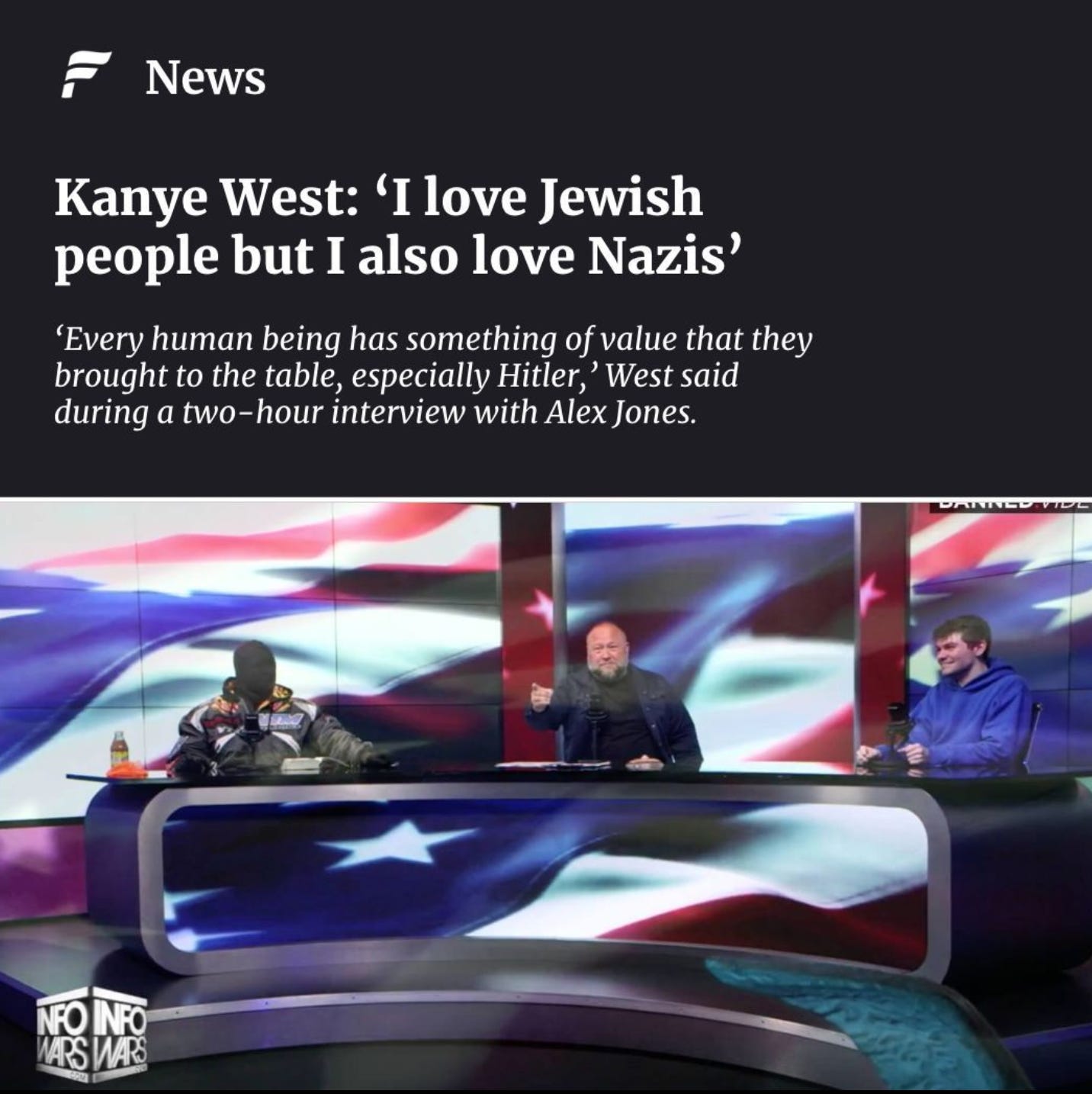
Dave
In June, you know, after I took down the Substack, after the Dylan show, I had like some antisemitic comments to friends and family. And honestly also like homophobic things, too. I, I didn't talk about that with Kiana. But like there's been times in my life, you know, where I've identified as queer, you know, or gender fluid, you know. Or had that part of my sexuality expressed in certain ways. And then during that, um, mindset of the manic, sometimes I can like, go into what they call like super straight, like there's this joke, like people are like, Can I just be super straight? Like, can I, you know, not have any element of anything else?
Dave
And people make, make fun of that on TikTok back and forth.
Dave
And, um, so yeah, like, sometimes I'll like go to some of those homophobic moments in my own thought process the way that I think you're suggesting that Dylan did when he was going through that experience. Um, so, so yeah, I don't know <laugh> I mean I thought it was interesting, right, that the, the Kanye gospel, the Bob gospel, led to like a lot of like conservative, painful things for other people. And, and you know, maybe [much] less so for Bob, we don't need to, you know, besmirch Bob…here. But, uh, I think it's just part of the experience sometimes.
Ray
Well, and in both cases, there are these people that, it's not, I don't know, it’s not a Nashville country star. Where if they come out and start saying conservative things-
Dave
Yes, right, right.
Ray
Like you wouldn't be that surprised. Probably their audience agrees with, some portion of their audience, would agree with them. It's these, both of these people that are, in different ways, um, thought of as progressive, you know, Kanye musically at the forefront of, you know, so much music for so long. Bob Dylan musically. And, and politically, even though he sort of pushed away from that, he certainly has been identified with progressive causes since the Sixties. So having people like this.
Dave
Or even Kanye being like, George Bush doesn't care about black people, during the Katrina thing, Which was like-
Ray
Yeah! Yes!
Dave
Really galvanizing for people, you know, at that time, people really were like, he's on the edge here saying some good stuff.
Ray
<affirms>
Dave
So. Yeah, yeah. It's um, I think, I think Dylan's one of those artists who, there's so many versions of him, you know, he's just, that's like, his thing is like, he's like, I'm just gonna completely evolve and let it, let [me] be who I am…
Dave
Whereas other artists, they’re just one thing, consistently, like The Stones <laugh>, they’ve been, like, the same through every era, you know?
Ray
Yes. Right.
Dave
Not just playing live, but also, the songs they write, and, what kind of music they’re making.
Ray
If The Stones make an album next week, it’s going to sound, like The Stones, for better or worse.
Dave
Yeah, exactly.
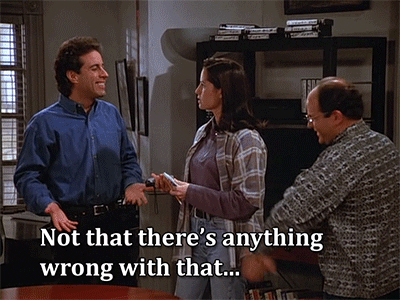
Dave
Um, so I feel like we're <laugh> we’re going, we’re pretty in-depth there. I don't know if we have anything more.
Dave
I guess I have to do a shuffle.
Thanks for reading Part 12 of the Podscript🎙📇!
And for supporting Volume 2 of Shuffle Synchronicities.
Part 13 will be emailed tomorrow ;) Part 11 is available here. Part 10 here. Part 9 here. Part 8 here. Part 7 here. Part 6 here. Part 5 here. Part 4 here. Part 3 here. Part 2 here. Part 1 here. Preamble here.
Don’t want to wait for all the Podscript posts to be emailed to you?
The audio of the full Podcast is already available to listen to here:
Don’t like it? That’s OK, too, there’s a smaller Unsubscribe button below.
Hope you enjoy the rest of the posts to come
Your day
And your life!





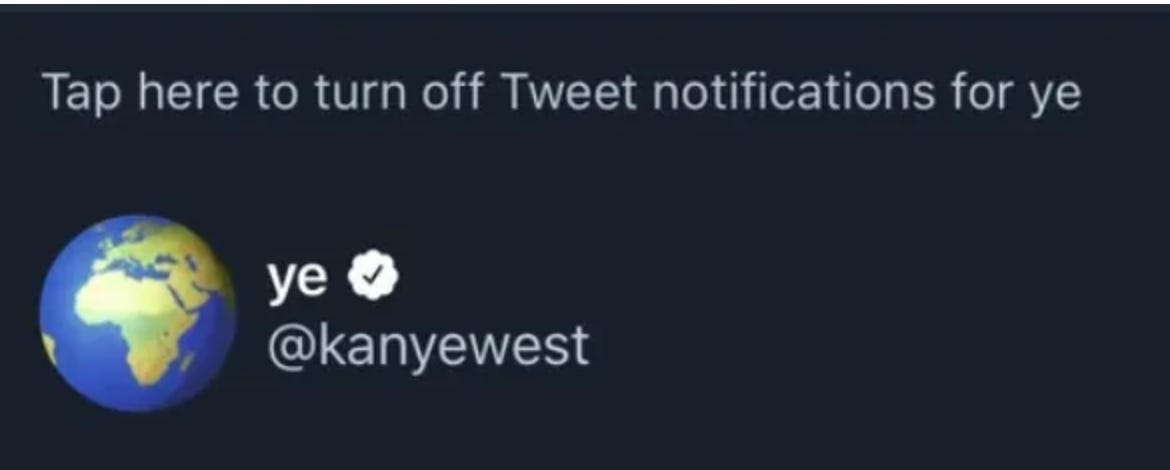
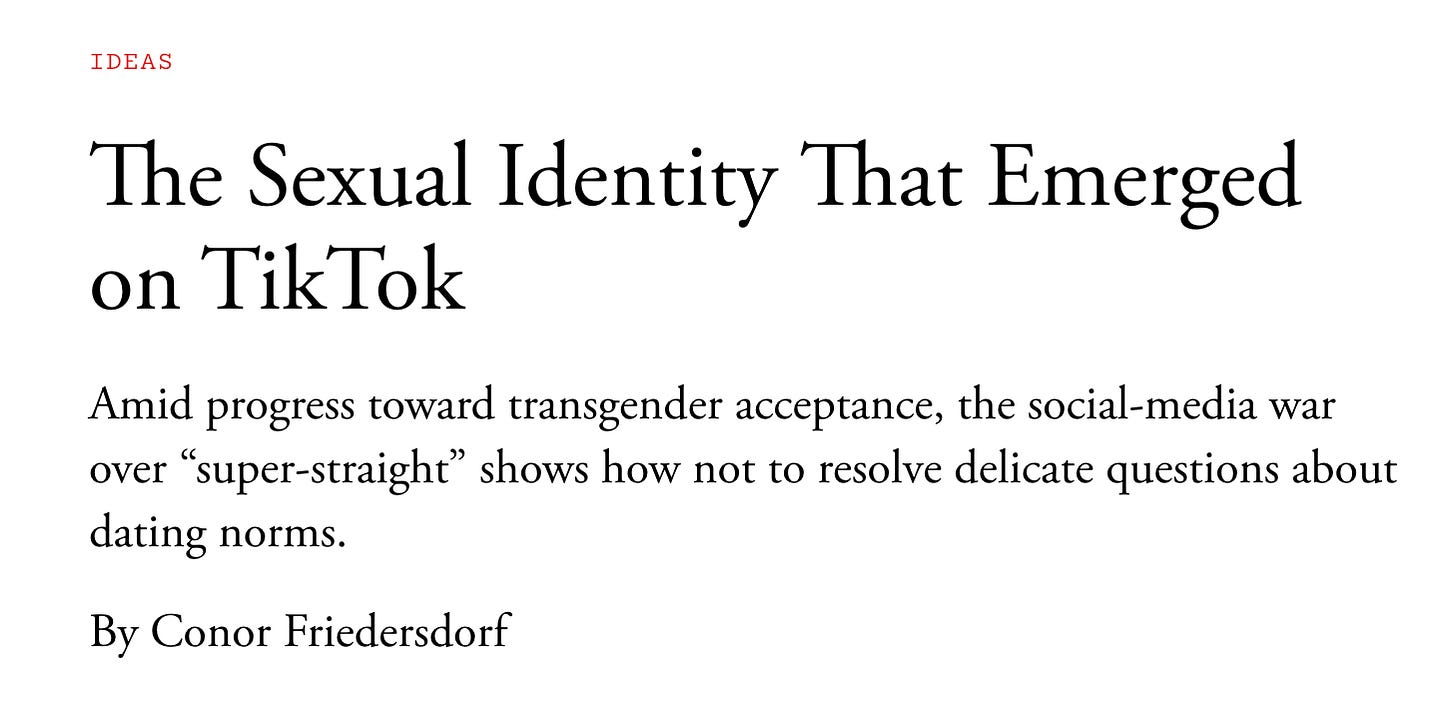
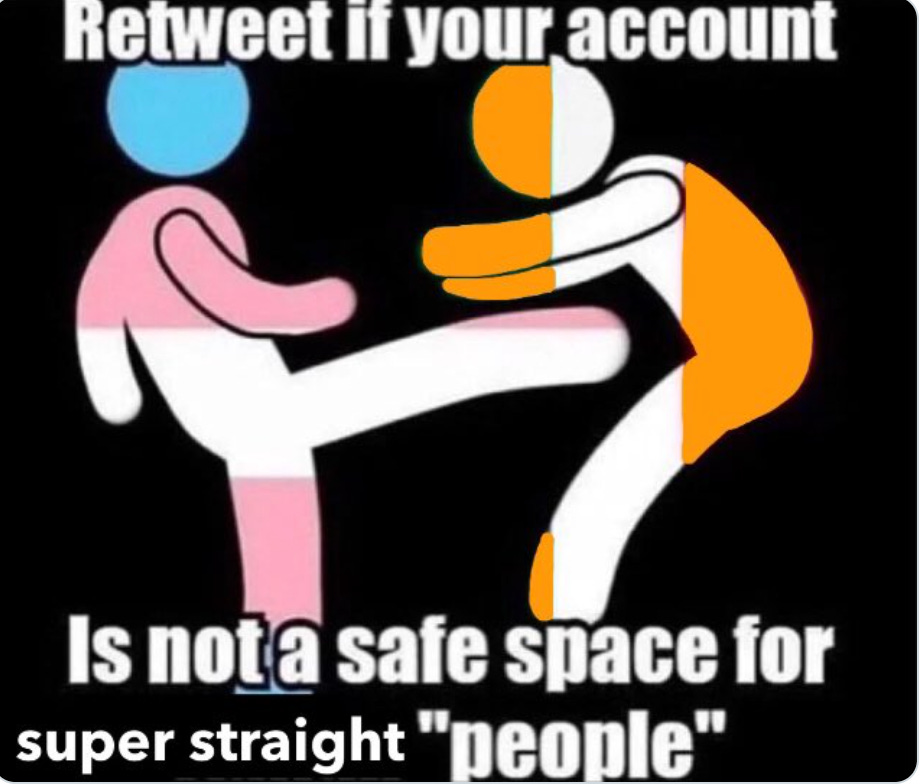
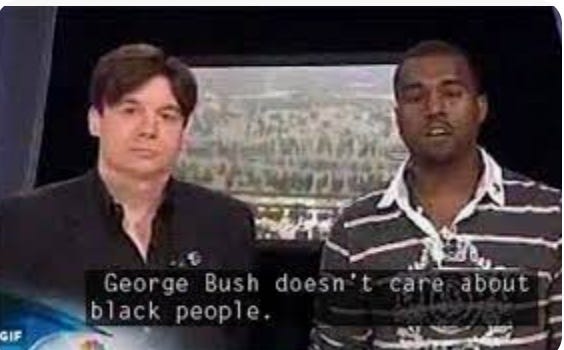
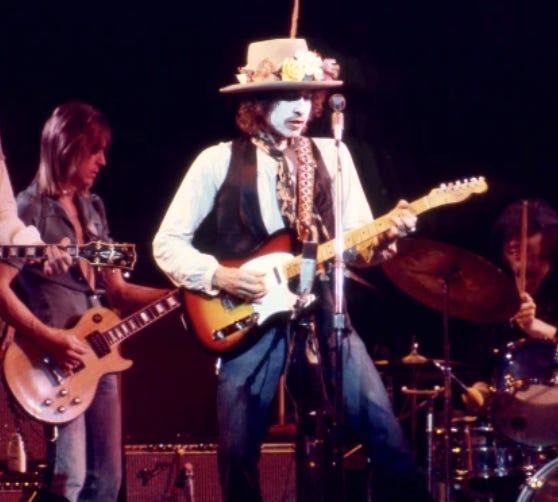
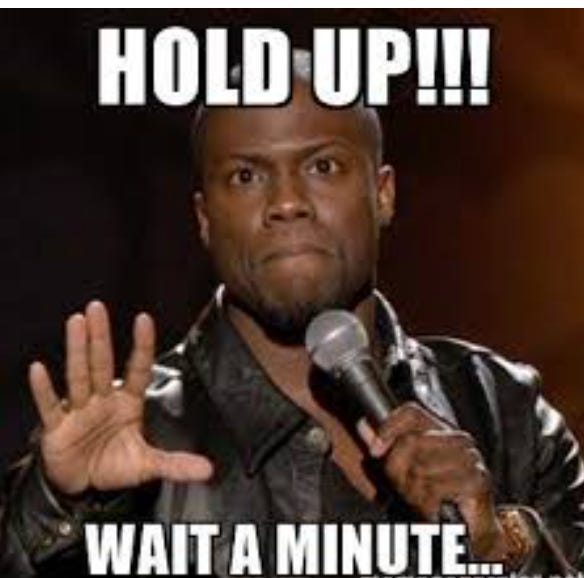
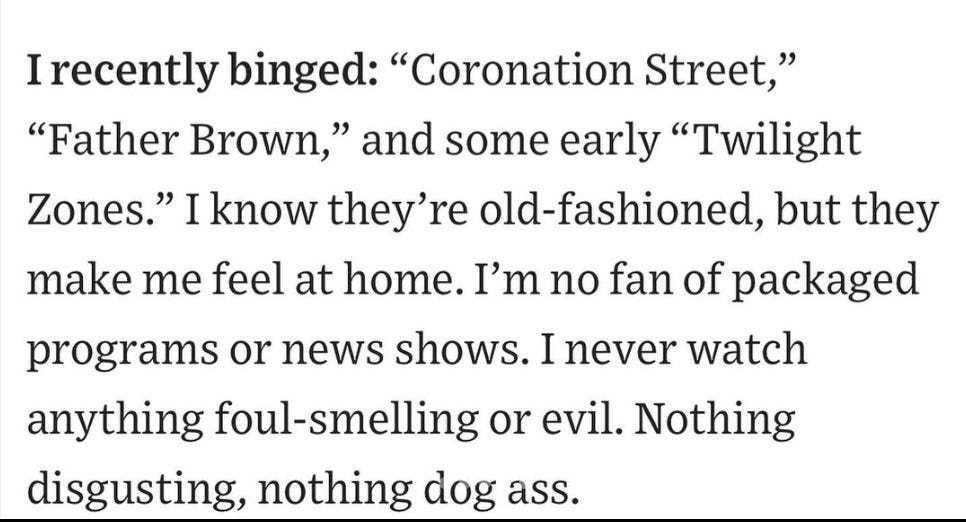
Thanks so much for your support Dave, and the different insights into Dylan.
I don't know of any other musician who rewrote himself that many times. I also wondered about how he wanted to provoke a crowd, and what he was trying to achieve at times. he always had a message and he wanted us to think about the lyrics. I also wonder what he thought about his audiences, over the generations he had such a mix. Was he singing to them, or mocking them at times? I suspect both. I must buy a copy of Chronicles, which I understand is a great read, even if in parts it is said to be a work of fact based fiction. He is after all a story teller :)